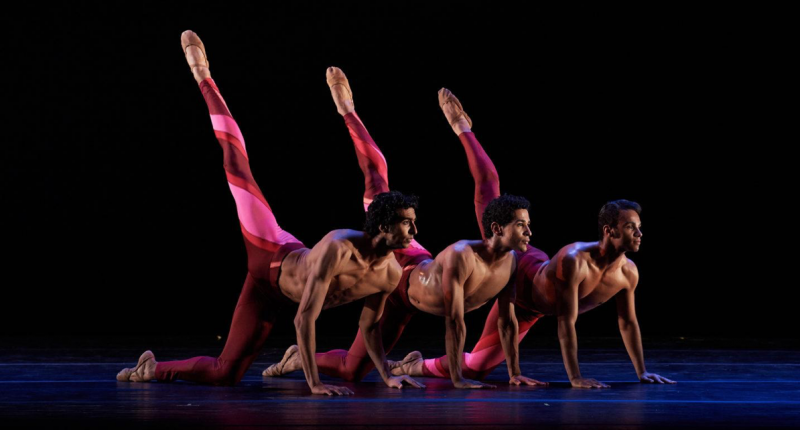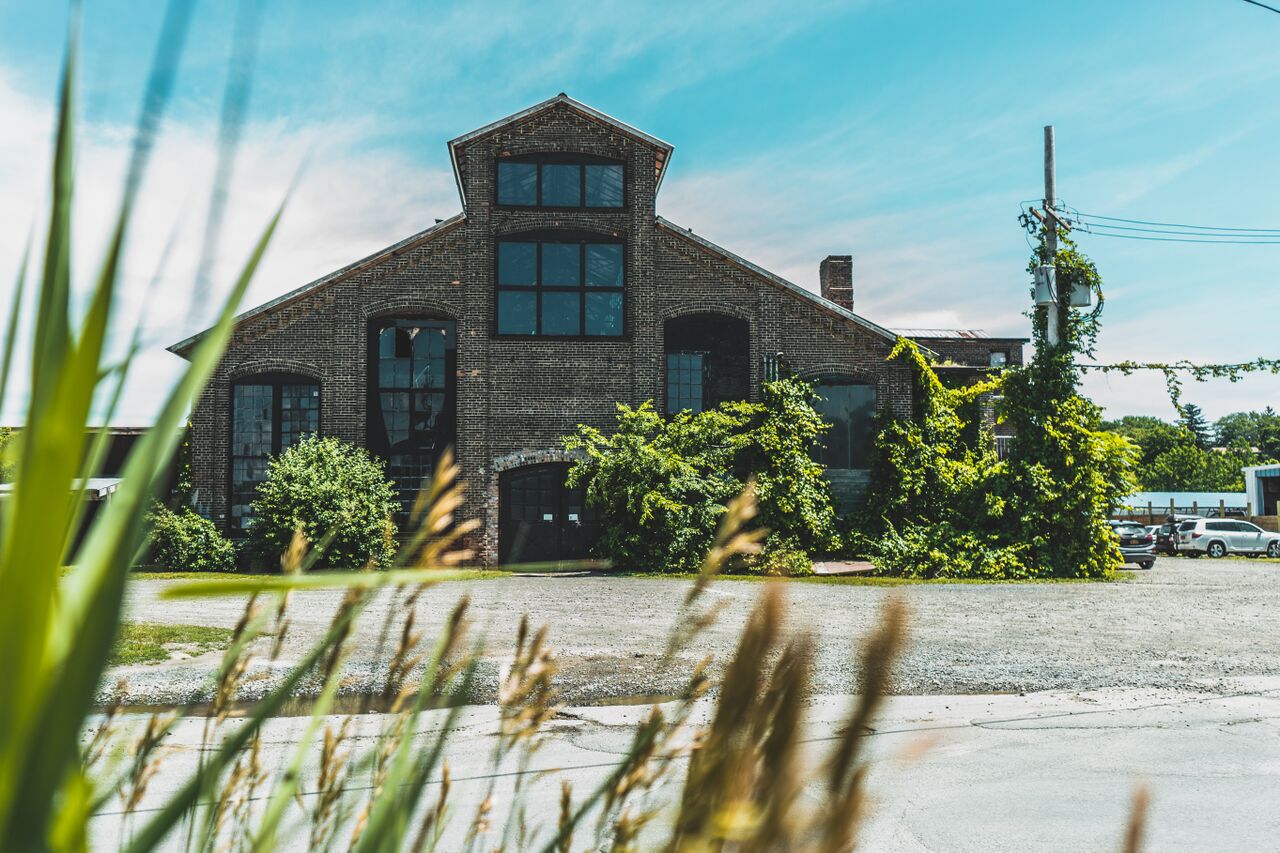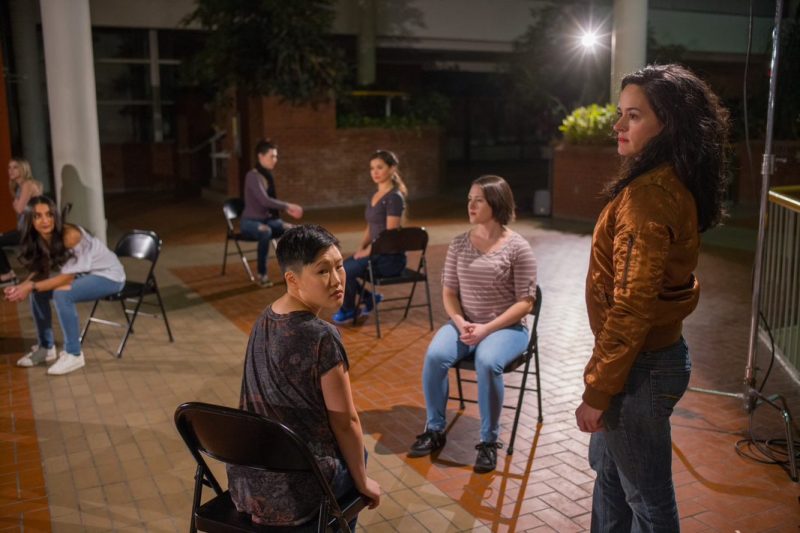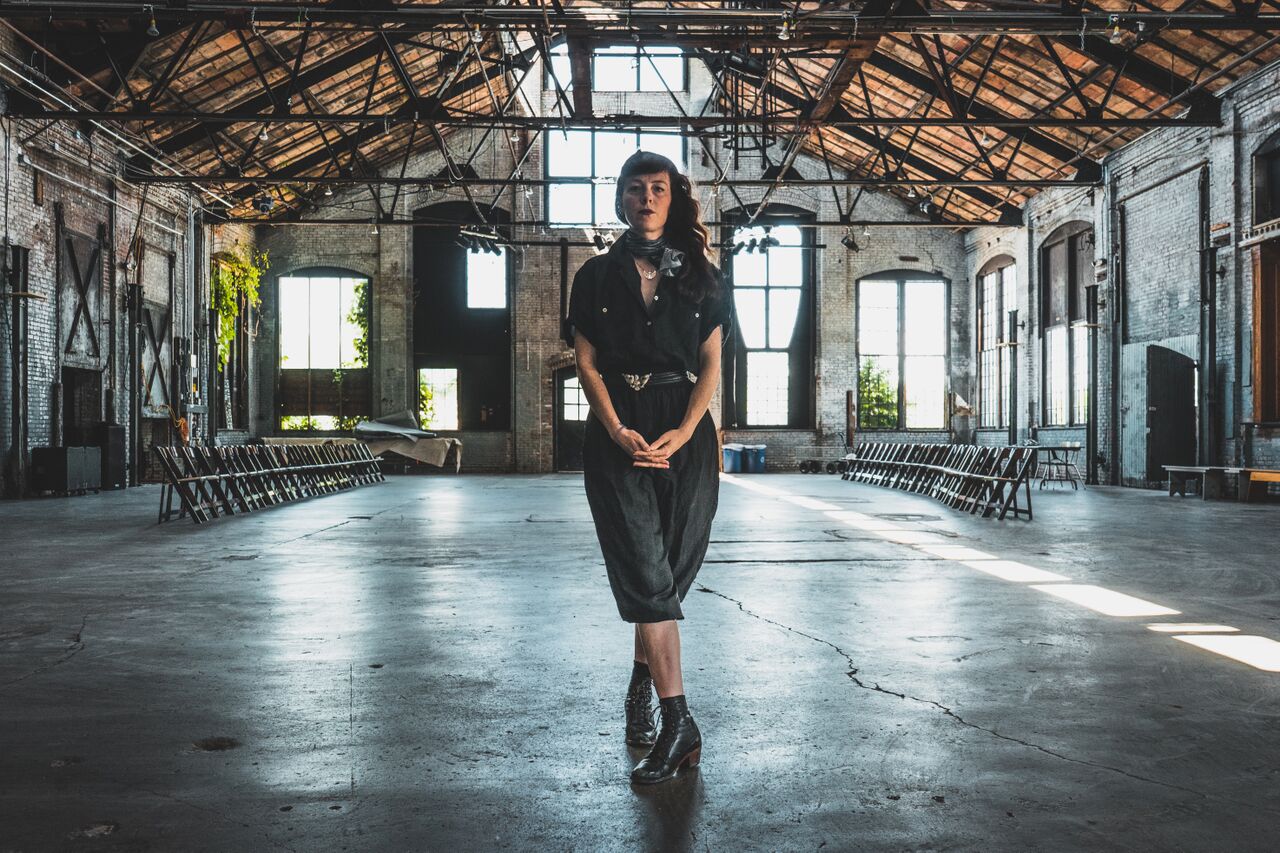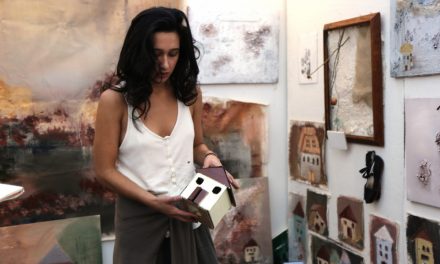Above: Dance Theatre of Harlem will celebrate 50 years at Festival at Jacob’s Pillow, the venue where they performed for the very first time as a company. Photo courtesy of Jacob’s Pillow.
The Festival at Jacob’s Pillow, the nation’s largest and longest running international dance festival, will kick off June 19 with the Brisbane-based contemporary circus performing arts company Circa and Vancouver’s daring, classic ballet company Ballet BC. The Becket, Mass. campus will host work by over 50 companies in 10 weeks. In addition to the lineup of performances, visitors can attend artist talks, masterclasses, tours and exhibits through Aug. 25.
The Collaborative spoke with Jacob’s Pillow Director Pamela Tatge about how the festival grew to be such a force in the dance world as well as the far-reaching new pieces and notable milestones that will be shown and celebrated this summer.
“It’s something that anyone who loves dance needs to experience, at least once in their lives,” she says.
The Collaborative: Jacob’s Pillow is such a historic dance venue, literally a National Historic Landmark, that has been honored with the National Medal of the Arts. The Festival, in its 87th year, is one of the largest international dance festivals in the world. How did it get to this point?
Pamela Tatge: I think it all came by demand. Ted Shawn, our founder, had initial performances in the 1930s in a small barn. Very quickly he grew out of that space and over time it grew and grew because people came to think of Jacob’s Pillow of the place to see dance, not only in the country but in the world. Shawn was one of the first people to bring in many international artists who had never been seen before in the United States.
CO: What does it take to put this Festival together? How far ahead are you scouting and planning for the next year?
PT: I am, right now, planning for 2020 and 2021. I need to be done with 2020 by Oct. 15. That’s how it goes. It means that I’m traveling to different parts of the world to see work with my colleague [Associate Producer] Ariana Massery, who also travels quite a bit. Particularly for the outdoor stage, we have a call that is issued internationally for companies who want to be presented by the Pillow and we often have to work off video for that. It takes a team of people just to produce what it takes to support these companies—to have them be at their very best when they come to the Pillow. We’re artist driven and this is a very important invitation for these companies to receive. It can be a game changer for their career trajectory.
[Between] Inside/Out, which probably gets 300 for 30 slots and the rest, it’s hard for me to quantify our proposals. Performances at the [Doris] Duke and the [Ted] Shawn Theatres are by invitation by me, the curator.
CO: When it comes down to choosing companies that will be part of the Festival season, what are you looking for?
PT: The first thing all companies have to have in order to make the cut is authenticity. The work has to originate from a real place that is not derived or trying to be something that it’s not. That is true with ballet, traditional dance or tap companies. I also look for the power of intention within the dancers themselves. Is the work happening now? Is there an urgency to what is happening onstage? Do I feel it in a visceral way?
Then I have to balance. I have to think of genre, geography, a certain number of premieres—because we are known for giving birth to a number of works—as well as debuts. I look for US debuts or Pillow debuts, for which the invitation—like I said—would be a gamechanger.
Then I have to think of venues. In the Shawn, which is our larger theater, we can accommodate works with more production needs. In the Duke, there are fewer seats and I can do work that is perhaps lesser known and introduce new companies that will sometimes transfer to the Shawn.
In the case of this summer, Compañía Irene Rodríguez, an amazing flamenco company from Cuba started two years ago in the Duke. It was the first company to sell out and they completely rocked everybody’s world. It was clear [Rodríguez] needed to be in the Shawn so she will be there this summer.
CO: Are there any performances that you think will match that caliber in Festival 2019, or that you are particularly excited about this year? I know there are some big celebrations happening in terms of dance history as well, with Merce Cunningham’s centennial being a major one.
PT: They wouldn’t be there if I wasn’t excited about them but I can say that we are celebrating Dance Theatre of Harlem’s 50th anniversary. Believe it or not they actually had their company debut, their first performance ever, at Jacob’s Pillow so it’s fitting that we honor them. The great Paul Taylor passed away last year and we are a stop on the company’s legacy tour. We are celebrating the 100th birthday of Merce Cunningham by bringing one of his dancers, Robert Swinston, who is actually an alumnus of the School at Jacob’s Pillow. He has a major school in France [Compagnie CNDC-Angers] and will be bringing that company to perform an all-Cunningham program.
I’m also really excited about how live music is featured prominently at the Pillow. It’s just such an incredible experience to see dancers interacting with musicians. We have the US debut of a company from England called Umanoove. There is a violinist onstage during the entire performance who is like a character. He moves in and out of the dancers and it’s really fascinating to see. Urban Bush Women is doing a work that departs from the music of John Coltrane and, of course, the great Mark Morris—whose company is really built on the intersection of live music and dance—will show work from his Dance Group.
CO: With Jacob’s Pillow being such an influential and career-changing establishment to showcase and discover new work, have you noticed any developments closer to home in the surrounding Berkshires dance communities?
PT: It’s true that many people in New England look to what the Pillow is doing so what you will see is many companies coming to the Pillow and then, in subsequent years, being featured by area presenters. We’re very important to the total ecology in terms of supporting and bringing attention to companies. We also have a “New England Moves” initiative in which we want to see more dance touring intra-New England. We’re excited to be partnering with Williams College…in the spring of 2020 on a first ever New England artist showcase that will start at Williams, come to the Pillow and head to other venues in New England.
We also are providing residencies for local artists at a rate that we haven’t in the past because we feel that New England artists need more research and development time.
CO: Earlier you mentioned that the growth of Jacob’s Pillow was really born from demand. Have you noticed in your time here that the Festival audience has changed or developed?
PT: We really want to build our younger audience. It’s been a real focus of our institution for the past three years. We have discounted tickets—subject to availability—for people who are under 35. We also have post-show cast parties on Saturday nights if you are under 35, which is just one of the best dance parties in New England.
We’ve seen attendance by that age group double each year with this initiative, so we’re definitely building but we have a long way to go. Here in Western Mass. we have a real issue with a lack of transportation, or difficulty in getting to the Pillow, so we provide a bus from Pittsfield to the Pillow every Saturday so that’s really helped as well.
Festival 2019 at Jacob’s Pillow runs through Aug. 25 in Becket, Mass. Many performances, such as the “Inside/Out” outdoor stage series, are free. For a full schedule of events and ticketing prices, visit jacobspillow.org/festival.

